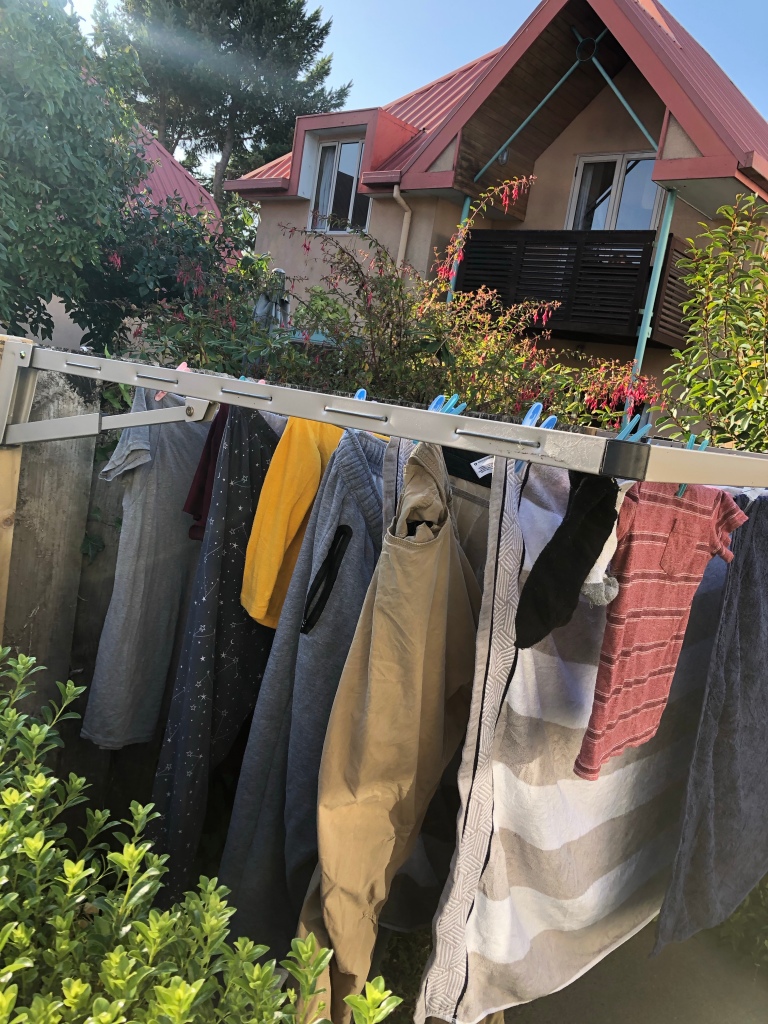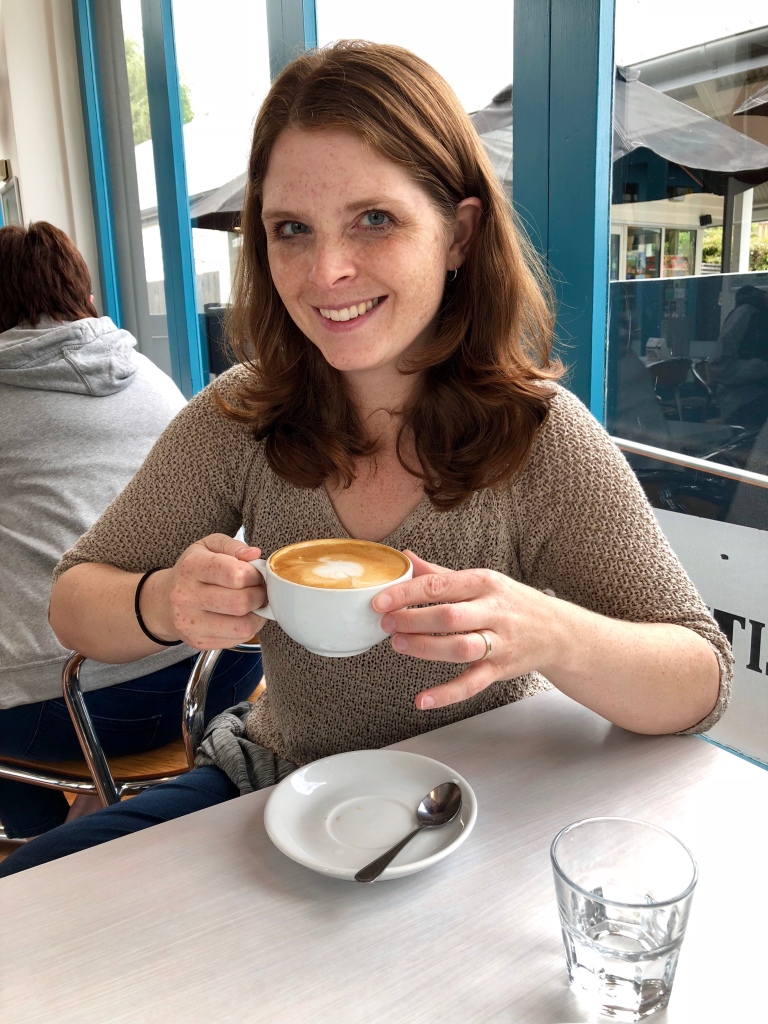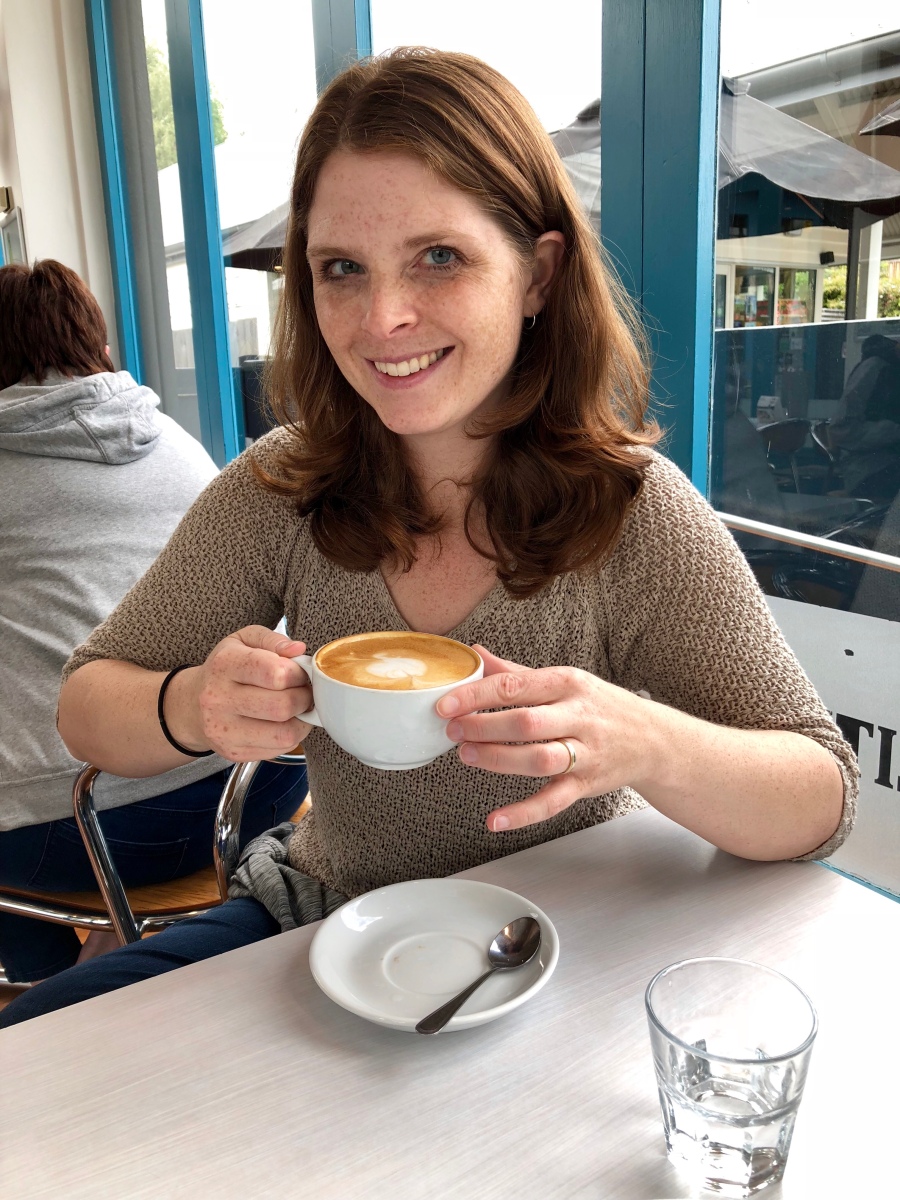The first of July 2020 marks our one-year anniversary as Canadian expats living in New Zealand, so what better time to reflect on some of the things we love about living here (and a few of the things we don’t… let’s face it, nowhere is perfect!). In general, New Zealand is pretty amazing. And how grateful are we to be living here during a global pandemic?!?!

But let’s get the not-so-amazing stuff out of the way first:
Things we found difficult or frustrating
- Houses are poorly insulated. Coming from Canada, where central heating and double-paned windows are a necessity or you would freeze to death in the winter, we were shocked to discover that many (most!) homes in New Zealand are not well insulated or heated. We arrived in the dead of winter and struggled to adjust to the cold, which just seems odd for Canadians to say. The winters are temperate – it rarely gets below freezing in Christchurch – but they’re damp and windy and if you’re in a drafty house, it’s not a good combination. Some of the newer homes are better, but the change is very recent so most places are still really cold. We invested in lots of thermal underwear and cozy pajamas, because turning up the heat pump (yes, that’s singular… they don’t even have heaters in all the rooms!) isn’t always an option because of the next point of frustration….
- Electricity (and a lot of other things!) is expensive. We pay about four times as much for electricity here as we did in North America. This expense is why Kiwis hang their clothes to try instead of using a dryer, have ‘off’ switches on every electrical outlet, and bundle up in blankets at night instead of leaving their heat pump on! A lot of other things are really expensive, too, and the sticker shock can be an adjustment.
- The healthcare system is confusing. We’d always heard that New Zealand has universal healthcare, but that’s not exactly true. It’s a confusing two-tiered system and everything is handled through general practitioners (GPs, or family doctors as they are more commonly called in Canada). You pay every time you visit the GP (around $50-$70, although kids are free and those with lower income can apply for an exception), and if you need special tests, you often have to pay for those too (Chris needed a chest X-ray and it also cost $50). The prices are relatively reasonable, especially compared with the United States, but for Canadians who are used to accessing whatever healthcare we need at no direct cost to us, it has been an adjustment. A program called ACC covers a large portion of healthcare expenses for anyone who is injured accidentally, but you do still have to pay for certain things. Private insurance is available, but only for certain types of care, and we still don’t fully understand how that works. If you need to see a specialist, you have to go through the GP first, and referrals can be refused (and are refused, at a rate much higher than anything we’ve experienced anywhere else!). Anyway, suffice it to say that the quality of care has been okay so far, but we’re still a bit confused and it’s not a universal system.
- Diesel fuel is popular so car exhaust is extra gross. Apparently diesel increases torque or something? I’m not sure what the appeal is, but diesel is used a lot and it stinks (in more way than one).

Things we LOVE about New Zealand
- The whole country is beautiful. Seriously, if you tried to stop at every scenic view point, interesting attraction, and natural phenomenon, you could spend years driving around this country!
- Tipping is not a thing. People are generally paid a fair wage here, and tips are not expected. In fact, most of the locals really don’t like it when visitors tip because they don’t want it to become commonplace here. The price you see is the price you pay – tax is included too. If you get exceptional service that is above and beyond what you would expect, you’re welcome to tip, but otherwise, no one expects it and not stressing about how much to leave, especially when the service was just okay, is such a relief.
- Free early childhood education (ECE). Every child between the ages of 3 and 5 years gets 20 hours of free ECE every week, whether that’s daycare, preschool, or “kindy” (kindergarten). Every child. It doesn’t matter what their family’s income is or their visa status, they can be educated for free. FREE.
- Everything is kid/family-friendly. Not only is ECE free for kids 3 – 5 but most activities are free for kids under 5, AND Kiwis in general are really understanding and accepting of young kids and their antics. Just the other day, I was shopping with Phoenix, who was running around like a madman. I was trying to wrangle him at the checkout and the lady helping me immediately engaged with him and distracted him by giving him our shopping bag to carry, and when I thanked her profusely, she patted my shoulder and said “You’re doing a good job!” (I totally wasn’t but I appreciated the reassurance!). The relaxed and supportive attitude when it comes to kids is so refreshing and such a relief for stressed-out parents.
- The government is reasonably good at protecting people and communicating. The response to covid-19 is a great example: the government took swift and definitive action, clearly communicated what was going to happen, and made sure everyone had access to everything they would need during lockdown. Jacinda Ardern even did a live online Q&A about the covid-19 lockdown with the public while in her pajamas at home. No government is perfect, but here in New Zealand, the leadership is pretty darn good.
- Life is more relaxed and people tend to be laid-back and helpful. Life is a lot less hurried here. People don’t seem to be as rushed or high-strung as North Americans can be sometimes. And they’re pretty supportive of each other. During the covid-19 lockdown, Kiwis were referred to as “the team of 5 million” because everyone came together and followed the rules in order to help protect everyone else. The solidarity was impressive and we managed to essentially eradicate the virus from communities here. On a more personal level, I was trimming our backyard hedge with a pair of scissors since we didn’t have hedge cutters when we first moved. Our neighbour noticed, introduced herself, and handed me a pair of hedge cutters to use. In general, people are really relaxed, laid-back, and helpful, making life less stressful overall. The change of pace is so nice.

The In-between
Here are a few things that are neither good nor bad, they’re just differences we observed when we moved to New Zealand:
- The main language spoken is English, but several words are different. We have a whole post on speaking Kiwi because there are lots of words in New Zealand that are borrowed from Britain (like “petrol”) and lots that are Kiwi-specific (like “jandals”). The biggest confusion was when we realized they have different names for fruits and veggies (like “courgette” instead of “zucchini”). Figuring out which veggies were which took us a while!
- Several foods we’re used to either aren’t available or are different. Some foods are better – like meat pies, meat in general, coffee, and most dairy products. Other foods aren’t as good, like marshmallows (they’re firmer and dryer here) and hot dogs (they do NOT taste like classic American hotdogs even if they claim that’s what they are!). Ketchup isn’t a big thing here, and instead, you’ll often get “tomato sauce” with your fries, which is just not the same thing. A few foods, like graham crackers and pudding, aren’t commonplace in New Zealand at all. It took several months for our taste buds to adjust to the slightly different food, but now we hardly notice.
- Hanging clothes to dry takes some planning. We actually don’t mind hanging clothes instead of using a dryer, but it does require thinking ahead so that anything you need to wear is washed far enough ahead that it will be dry by the time you need it!
- Restaurants don’t serve bottomless drip coffee. Well, some do (usually those that are inspired by American diners), but most just serve specialty coffee by the cup. Sometimes I miss the unlimited refills of slightly crappy coffee but on the plus side, the specialty coffee is typically really good, especially the flat whites!

The past year has been crazy in so many ways, but we’re thankful to be living here in New Zealand and are proud Canadian Kiwis… I was going to call us “Caniwis” but apparently that’s what they call Canadians who have obtained Kiwi citizenship, so we’ll save that for a post a few years from now 😉
Have you lived in New Zealand? What would your Good, Bad and In-between lists look like?

Absolutely loved this post! Australia is expensive too compared to North America. Probably because we’re so far away from everything! I find it interesting you thought hanging washing on the line is weird – I don’t even own a dryer. Never have. (except in Canada when I lived on campus!!) Anyway, sorry for all my rambling. Looking forward to your next post! 🙂
LikeLike